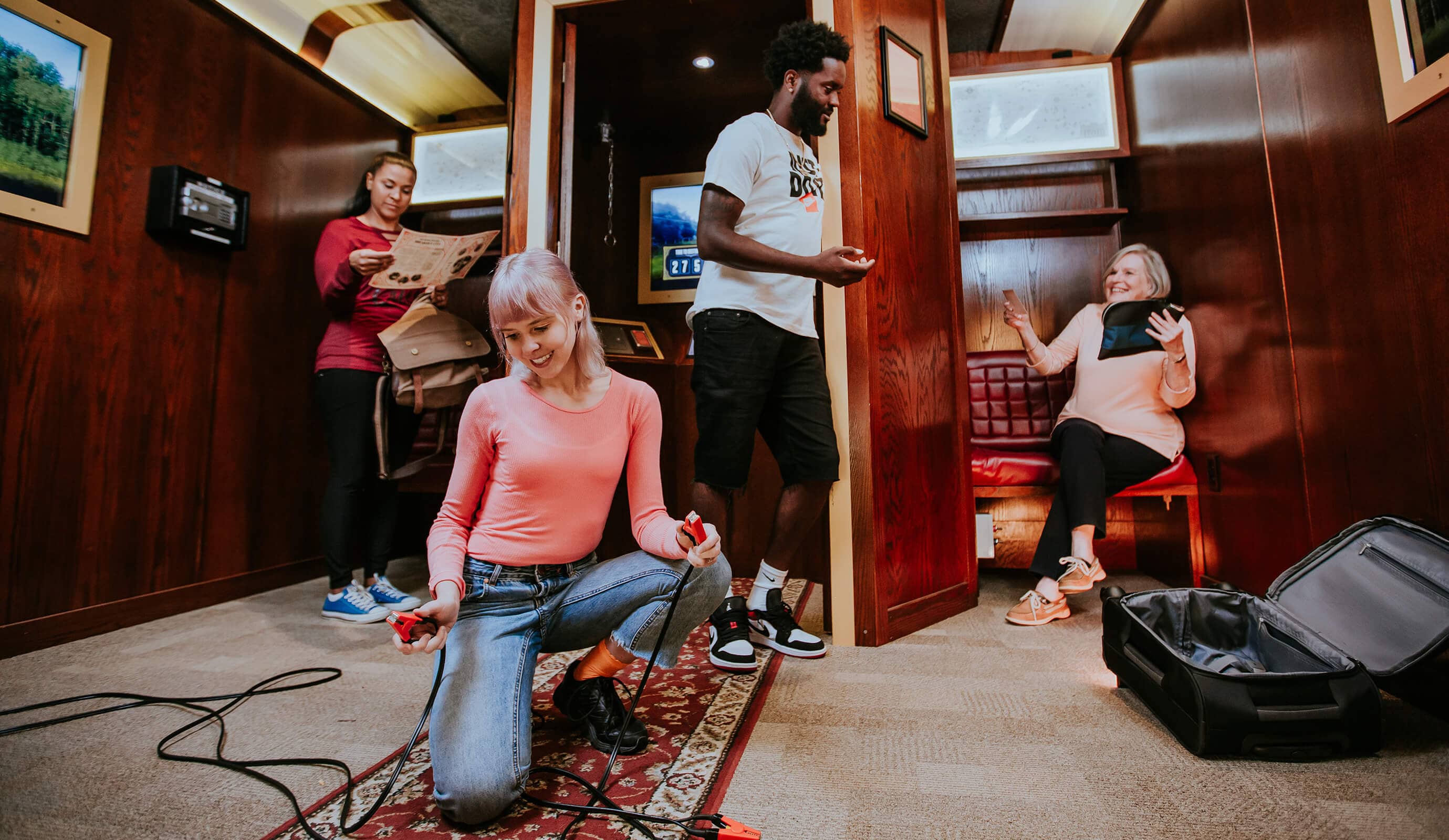Best Escape Room-- Test Your Skills and Solve the Enigma
Best Escape Room-- Test Your Skills and Solve the Enigma
Blog Article
Group Methods: Just How to Team up Efficiently in an Escape Space
Groups should actively listen to each member's understandings, appoint duties that straighten with individual staminas, and maintain regular check-ins to make certain emphasis and protect against redundancy. By cultivating an environment that values communication and adaptability, teams can dramatically enhance their efficiency and success rates.
Establish Clear Interaction

To assist in clear interaction, it is important to assign a central factor of get in touch with for info circulation. This duty involves summing up searchings for and suggested techniques to ensure every person stays on the exact same web page. Furthermore, taking on an organized technique to conversations can avoid disorderly exchanges. For instance, brief, concentrated updates from each group member can maintain the group notified without overwhelming them with information.
Appoint Functions Strategically
While clear interaction sets the structure for effective synergy, designating functions purposefully makes sure that each team member's staminas are made use of properly. In a retreat room circumstance, the time-sensitive and complicated nature of obstacles necessitates a well-organized approach to job delegation. By identifying and leveraging individual proficiencies, teams can optimize their analytic capacities and boost total performance.
Someone with a keen eye for information may excel in finding covert objects, while a logical thinker might be much better matched to resolving puzzles. This role frequently requires strong organizational and interpersonal abilities.
Second, make sure that functions are versatile and versatile. As new challenges arise, the group should have the ability to pivot, reallocating tasks as called for. This adaptability helps keep energy and protects against traffic jams that can happen because of rigid role assignments.
Inevitably, a tactical approach to role project not only maximizes the staminas of each employee but likewise fosters a cohesive atmosphere, driving the team towards a successful getaway.
Utilize Diverse Skills
Identifying and utilizing the diverse skills within your group can considerably boost your efficiency in an escape space. Each staff member brings unique strengths to the table, and properly leveraging these capacities can expedite analytic and boost overall efficiency. A team participant with strong analytical skills could excel at analyzing complicated codes or patterns, while one more with eager observational capabilities may swiftly visit the website detect concealed ideas that others might forget.
Motivate group participants to articulate their insights and concepts quickly, ensuring that all potential options are considered. In addition, designating tasks that line up with each participant's toughness can avoid bottlenecks and make certain that progression is continuous.
Furthermore, variety in skills often equates to diversity in believing styles, which is indispensable in an escape space setting. While some challenges may need sensible reasoning and accuracy, others may gain from creative and association of ideas. By acknowledging and leveraging this diversity, groups can deal with a broader series of difficulties much more efficiently, consequently increasing their chances of a successful retreat.
Manage Time Properly

First, assign first minutes for a fast survey of the room. Recognize visible challenges and split tasks based on staff member' toughness, making sure that no one is idle. Set internal time checkpoints to assess development regularly; as an example, objective to have half the puzzles solved by the mid-point of the game. This practice can assist keep the group focused and avoid time from escaping undetected.
Furthermore, stay clear of tunnel vision. If a puzzle is taking also long, turn team members or carry on to another obstacle, returning later on with fresh point of views. Interaction is extremely important-- maintain every person upgraded on addressed puzzles and remaining tasks to avoid repetitive efforts.
Last but not least, use any kind of hints or ideas sparingly however strategically - best escape room. Recognizing when to request assistance can conserve useful time. By sticking to these time administration principles, read the article groups can considerably enhance their opportunities of a successful and satisfying retreat space experience
Debrief and Show
Representation is a crucial facet of group development and enhancement in the context of getaway areas. Once the difficulty is completed, whether efficiently or not, it is vital for the group to take part in a structured debriefing session. This procedure enables staff member to evaluate their performance, recognize strengths, and identify areas for renovation.
Start the debrief by reviewing what worked out. Highlight particular instances of reliable communication, analytic, and collaboration. Acknowledging these favorable actions strengthens them and motivates their repeating in future challenges.
Discuss minutes of confusion, miscommunication, or inadequate approaches. Urge an open and constructive discussion where team members can share their perspectives without anxiety of criticism.
Conclusion
Finally, successful partnership in a retreat area is asserted upon clear interaction, tactical function assignments, the effective application of diverse abilities, and skillful time management. Regular check-ins and structured debriefings are important for preserving emphasis and cultivating continual enhancement. By developing a cohesive and flexible group atmosphere, the likelihood of effectively resolving challenges and attaining the objective of getting away the room is considerably boosted. This strategy not just makes certain success however likewise promotes collective growth and understanding.
Report this page